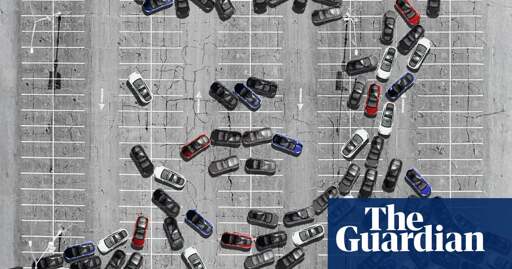The car came to rest more than 70 metres away, on the opposite side of the road, leaving a trail of wreckage. According to witnesses, the Model S burst into flames while still airborne. Several passersby tried to open the doors and rescue the driver, but they couldn’t unlock the car. When they heard explosions and saw flames through the windows, they retreated. Even the firefighters, who arrived 20 minutes later, could do nothing but watch the Tesla burn.
At that moment, Rita Meier was unaware of the crash. She tried calling her husband, but he didn’t pick up. When he still hadn’t returned her call hours later – highly unusual for this devoted father – she attempted to track his car using Tesla’s app. It no longer worked. By the time police officers rang her doorbell late that night, Meier was already bracing for the worst.



I mean it’s all true:
Most importantly, since no one has self driving yet, it’s premature to talk about that as a mistake. Let it fail or succeed on its merits. Let other self-driving attempts fail or succeed on their merits.
“humans drive based on vision alone”
Not quite. We use our sense of touch and direction to feel our momentum, like how hard a turn or acceleration is. We can feel steering traction changes like when tires begin to slip under acceleration/deceleration. We feel when we’re starting to hydroplane. Cars are a cornucipia of touch feedback that drivers respond to.
Sure but if you make that argument, even relatively dumb cars have that as well. At least antilock brakes have been mandatory for a few years (in the US) and traction control might be as well. Both lead to immediate adjustments in driving, more quickly than any human can react.
More automated cars must have some equivalent feedback on balance, sharpness of turns. I don’t know what it is, but they generally execute smooth comfortable turns.
"Both lead to immediate adjustments in driving, more quickly than any human can react. "
Again, sort of. ABS isn’t quicker than humans react, it’s a stopgap measure for divers without sufficient skill. It only turns on after you have fucked up and locked your breaks.
“I don’t know what it is, but they generally execute smooth comfortable turns.”
Likely a combination of software that defines comfortable zones, including adhering to speed limits and paired with an accelerometer.
I think we are still a very long way off from autodrive. Being able to handle changing conditions like freezing rain and black ice or a flooded road will take time.
Or just a snow covered road
Do you have an example of another serious company working on the problem that also has concluded that lidar is unnecessary? Because I don’t.
I’m not an expert, but as I understand it, the consensus (excluding Musk of course) seems to be that lidar is necessary for proper functioning and safety in poor visibility situations, like in rain, fog or general darkness. I think the odds are good that the judgment of an overwhelming majority of companies is more correct than the judgment of Musk alone. Particularly considering Musk’s proven track record of cost cutting that puts users’ lives in danger, for example not being able to manually open the doors of burning Teslas.
Lidar has strengths that complement where video has weaknesses. That seems like a good thing. However it is bulky and expensive, and not yet produced at scale. Those are bad things. Whether it really makes a difference in simplifying the machine learning, only those developers know. You have to balance the pluses and minuses, and just because one company came up with something different, doesn’t mean it’s wrong.
Maybe it won’t work without lidar but maybe it will - in the meantime Tesla has saved like $1,000/car times however many million they produce. If they succeed, then they have a solid cost and scalability advantage
The deciding point is if someone does develop general self-driving. Will those who are behind be able to swallow their pride and modify their approach?
When the sun shines in your eyes, do you not put on sunglasses? Cameras can’t do that.
When you have dirt in your eyes, do you not rub it out? Cameras can’t do that.
When something is obstructing your view, do you not move you head to the side until it is not? Cameras can’t do that.
Humans are much more than cameras and a brain.
And even if they were, shouldn’t we aim for something better than we currently have?
Waymo runs a taxi service at scale.
They don’t though. Waymo runs a few pilots in a few specific geolocked locations with essentially hand built cars at a huge loss. They also have human remote supervisions. They do seem fairly successful and maybe their slow careful rollout will eventually be at scale in the areas that need it most. Hopefully it will work.
While it’s easy to argue Tesla hasn’t had those successes yet, they do have the “at scale” part down and are already profitable on the vehicles. They are close enough to self-driving them at they’re willing to try their own pilots with human intervention. If they succeed, they already have the scaling up done and are profitable on hardware so will quickly surpass other competitors.
I like that different companies are taking different approaches, so we have competition. May the best technology succeed!
This is a wonderful attitude to have as long as it’s not in the comments of an article about how Tesla’s approach is trapping people and burning them alive.